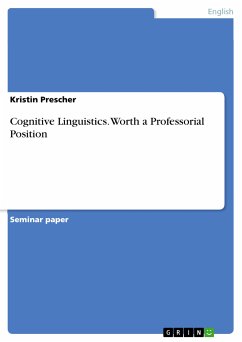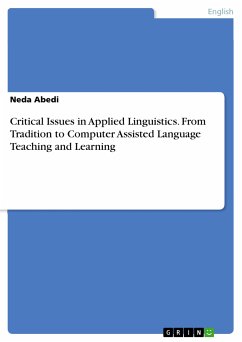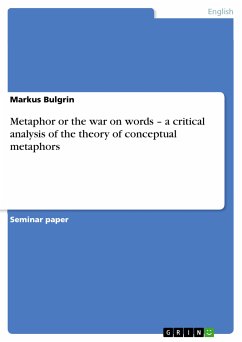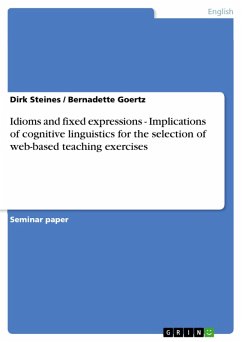Seminar paper from the year 2002 in the subject English Language and Literature Studies - Linguistics, grade: 1,25 (A), Dresden Technical University (Anglistics), course: Cognitive Linguistics, language: English, abstract: The aim of this paper is to give a brief overview of the core ideas, approaches and the main representatives of Cognitive Linguistics and in which way this approach differs from the classical structuralistic view. The explanations will not be exhaustive at all, but should suffice to make clear how revolutionary the ideas of Cognitive Linguistics are and how it will hopefully influence linguistics in general in the future. Cognitive Linguistics developed at the beginning of the 1980ies mainly in the United States as a completely new approach to the study of language and mind and how these two are related. According to cognitive linguist Gilles FAUCONNIER "perhaps for the first time a genuine science of meaning construction and its dynamics has been launched"1. The representatives see language as one of the most significant characteristics of cognitive activities and therefore the aim is to describe and explain mental structures and processes which are important to the processing of human language. According to Gilles FAUCONNIER, language is only the "tip of a cognitive iceberg"2. How does this view differ from the theories represented by structural linguistics? 1 Gilles FAUCONNIER in: Theo JANSSEN & Gisela REDEKER (ed.): Cognitive Linguistics: Foundations, Scope, and Methodology (1999: 96). Translation: "(…) wahrscheinlich erstmalig ist eine echte Wissenschaft der Konstruktion von Bedeutungen und ihrer Dynamik in Gang gekommen (...)". 2 Gilles FAUCONNIER in: JANSSEN/ REDEKER (1999: 96). Translation: [Sprache ist nur] "die Spitze des kognitiven Eisbergs".









